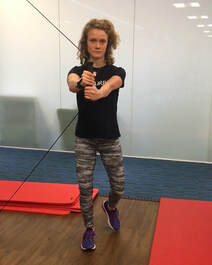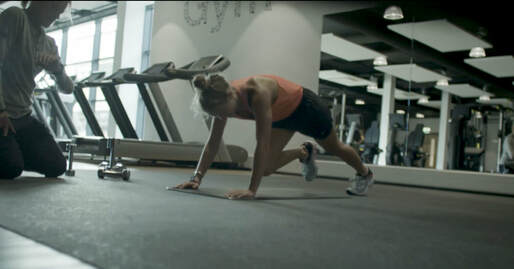|
This is not a question that has a universal answer for everybody. Lifting weights works for some people, and not for others. However, the sort of weight can also vary. As soon as someone mentions the word weights, it is assumed they mean benching huge weights or using the squat rack to lift double your body weight, but this isn’t necessarily the case. Well, I don’t do this! Lifting weights can come in all shapes and sizes. I don’t lift heavy weights, nor use the squat racks, but I do make use of barbells. A little bit of weight can be good for everyone, but it doesn’t need to be a lot in my opinion. An exercise I love, is single leg Romanian deadlifts with a weight between 6-8kg. I have been doing this exercise since my injury rehabilitation began and I believe it is excellent for leg and ankle stability and strength, as well as core strength. This is not a particularly strenuous or heavy exercise, but that little bit of extra weight helps. It isn’t enough to tire my legs out, which was the danger of the weights I was doing before, but it is enough to engage the muscles and improve lower leg stability. Another aspect of weight training that I find beneficial to do is ‘bodyweight’ exercises. This gets your body working and forces you to focus on that particular area you are working, ensuring you are engaging it properly. Starting all exercises with only your bodyweight is so important to make sure you target technique before you are then pushing yourself intensity wise. Start every exercise from bodyweight and perfect this first. The difficultly with using weights for exercises if they are not done correctly, are they may contribute to injury, rather than prevent it. Since injury prevention is key, this is not the best thing to do! Whilst weights and the gym may seem boring and tedious, it is so worthwhile. Since doing such exercises I have noticed a massive improvement in the strength and stability of my lower legs, especially my ankles. If we have stronger limbs and better control over them, we are less likely to be struck with injury. The use of low weights is key to injury prevention. If you decide to look to lifting weights, be careful, and do what you feel comfortable with. If you approach an S&C coach, make sure you voice your concerns if you are unsure about anything. You know your body better than anyone else, if an exercise is too hard on your body, or causing you to lose your form or struggle in the rest of the training, tell them. Also, don’t be afraid to ask questions. If you are unsure about the benefit of something you are doing, ask them, and don’t be afraid to say no to doing it. Unfortunately, I didn’t feel confident enough to say no when I didn’t like an exercise I was doing, and it backfired. Trust your own opinion when it comes to lifting weights.
The amount of weight and the intensity you do them at will be different for everyone and for different distances. If you don't currently include any sort of gym/low-weight work into your training now, be very gradual and cautious if you do decide to. Always start with bodyweight!
1 Comment
|
Hannah IrwinI love to run and I love to write, so I write about running! Archives
March 2023
Categories |


 RSS Feed
RSS Feed
